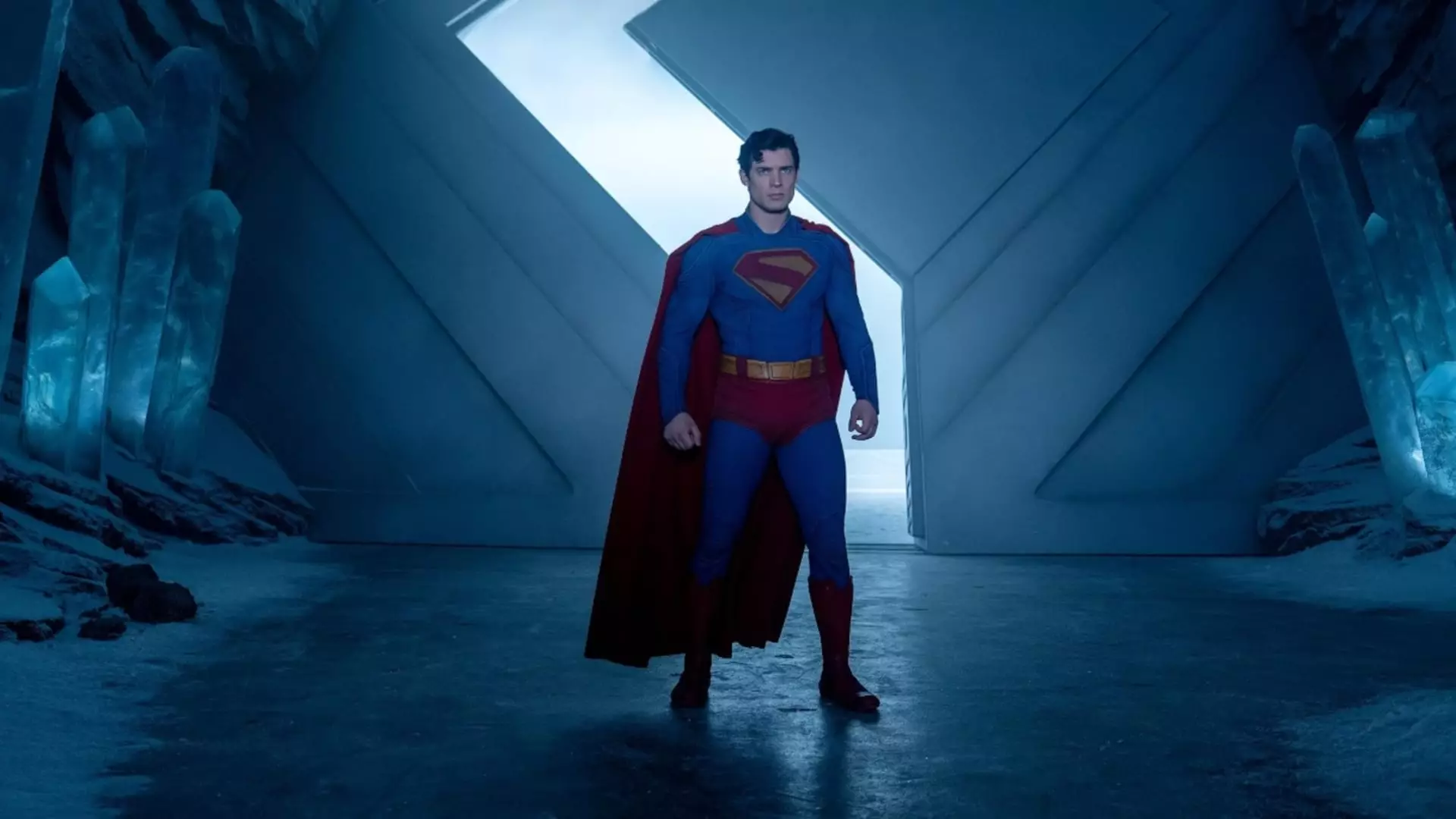Warner Bros.’ latest Superman reboot marks a pivotal moment not only for DC fans but for the entire landscape of superhero filmmaking. The film’s impressive preview numbers—$22.5 million—are being heralded as a sign of renewed vitality in a genre that has recently suffered from fatigue and oversaturation. However, beneath these numbers lies a complex web of expectations, commercial pressures, and ideological implications that warrant a critical eye. While the studio celebrates what seems to be a triumphant launch, the question remains: does this early success truly signal a meaningful revival or merely a fleeting moment of curiosity?
Critically, the preview performance, although the third-best for a superhero film under the DC banner, does not guarantee sustained popularity. History suggests that initial enthusiasm can quickly fade, especially if the narrative fails to resonate emotionally or if the film becomes entangled in high expectations that are impossible to meet. Comparing early numbers to past hits such as “The Dark Knight Rises” and “Batman v. Superman” can be misleading. While they suggest potential, they also cast a long shadow, reminding us that every major opening is subject to subsequent critical and audience reception—and, more importantly, cultural relevance.
Narrative and Ideological Underpinnings
Gunn and Safran’s leadership anticipates a new direction for DC, one that aims to balance commercial viability with thematic depth. Their previous work—such as “Guardians of the Galaxy” and “Peacemaker”—indicates an appreciation for humor, nuanced characters, and a fresh look at heroism that diverges from the darker, more brooding tone that has dominated recent superhero cinema. Thus, the reboot promises not just another spectacle but a renewed attempt to balance entertainment with message—a potentially vital shift in a genre criticized for superficial storytelling.
Yet, this ideological approach raises questions about authenticity and the risk of ideological messaging overshadowing storytelling. Will the new Superman truly connect with audiences beyond the spectacle? Or will it fall into the trap of being overly self-conscious, attempting to appeal to diverse audiences while losing the core of what makes Superman an enduring hero? The film’s high Rotten Tomatoes rating suggests early critical approval, but the real test lies in cultural relevance and audience engagement—elements that can be unpredictable in a landscape dominated by franchise fatigue and polarized viewing habits.
The Cultural and Commercial Stakes
The stakes are undeniably high for Warner Bros. and the new DC era. The film’s potential to dominate the summer box office hinges not only on initial performance but on how it sustains interest over time. While forecasts predict between $130 and $140 million opening weekends, these numbers, though robust, are not extraordinary when compared to past high-water marks of over $160 million for “Batman v. Superman” or “The Dark Knight.” This suggests that while optimism is justified, it should be tempered by realism about the competitive environment and shifting audience tastes.
Moreover, the focus on premium screens highlights Hollywood’s ongoing reliance on technological spectacle to lure viewers. Yet, this strategy is only as effective as the stories that fill those screens. Given that the film is positioned as a fresh start, there is hope that it will appeal to families and younger audiences, potentially creating a new generation of Superman fans. However, the risk persists that if the storytelling isn’t compelling enough, even the most impressive visuals may not be enough to sustain interest or foster long-term fandom.
Can the New Dawn Overcome the Past?
Ultimately, the reboot under Gunn and Safran represents a conscious effort to repair not only the franchise’s commercial fortunes but its cultural reputation. It signals a desire to reclaim hope and optimism within superhero narratives—values often perceived to be lost in recent blockbuster iterations marred by cynicism and violence. Their vision, shaped by their diverse experience in both Marvel and DC universes, suggests an attempt at a more inclusive, emotionally resonant superhero ethos.
Yet, critical self-awareness must also guide this revival. It’s easy to fall into the trap of repeating the mistakes of the past—overemphasizing spectacle, chasing box office figures, or succumbing to commercial pressures that dilute deeper storytelling ambitions. The true measure of this new Superman’s success lies not solely in box office figures but in whether it can genuinely rebuild trust with audiences who crave meaningful narratives amid the noise of modern Hollywood.
By critically examining these elements, it’s clear that the future of this franchise hinges on more than initial previews. It requires courage to innovate thoughtfully, humility to listen to audience feedback, and a steadfast commitment to embodying the hope and integrity that Superman has historically symbolized—something that remains elusive in a blockbuster world obsessed with spectacle over substance.

Leave a Reply